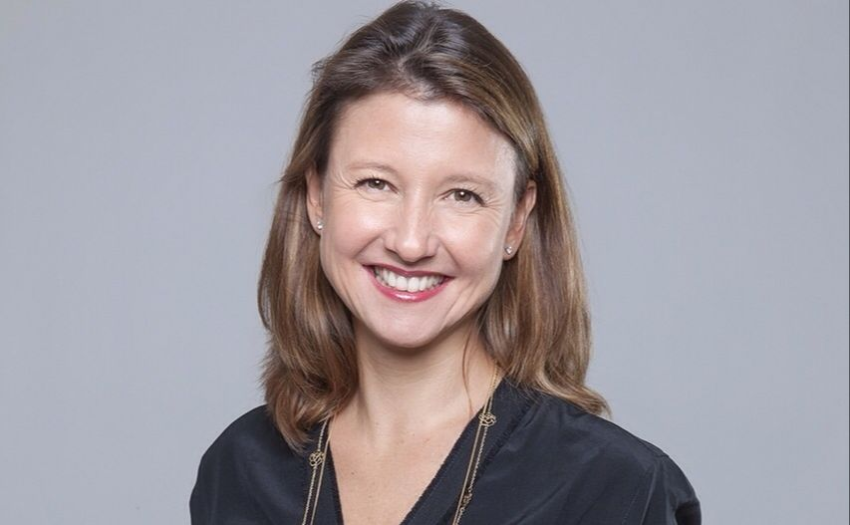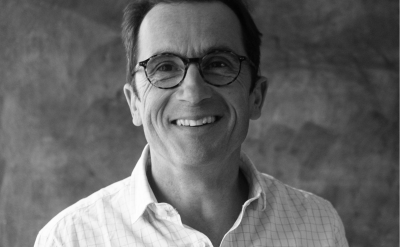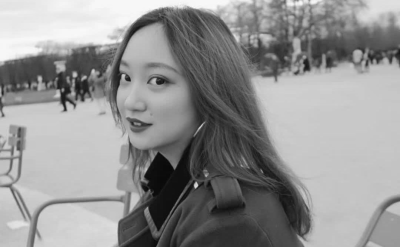News

Estelle Philibert: move abroad with enthusiasm and an open mind
After a few years of working in dermo-cosmetics in Europe, Estelle Philibert (SKEMA PGE 1997) followed her husband to China as an “accompanying spouse”. Through sheer hard work and daring, she was able to pursue her career and is now Retail Marketing Director at Pierre Fabre Dermo-Cosmétique in Hong Kong, for the Asia-Pacific region. She loves her job, and she loves Asia, where she managed to find the fuel to reinvent herself.
You have been the Retail Marketing Director for the Asia-Pacific region at Pierre Fabre Dermo-Cosmétique for 4 years. Can you tell us a little about this sector?
The dermo-cosmetics sector offers skin and hair care products whose efficacy and tolerance are guaranteed by health care professionals, notably to ensure they are suitable for the most sensitive skin types. Our R&D is in-house and we are very exacting when it comes to the selection, number and dosing of the ingredients that make up our formulas. Several Pierre Fabre brands are sold in the APAC region: Eau Thermale Avène is the most prominent, but Klorane, René Furterer, Aderma and Ducray are also important players.
Since the traditional European pharmacy channel has no direct equivalent in Asia-Pacific, we adopt a selective multi-channel strategy, as long as our brands can express their DNA: Eau Thermale Avène is primarily sold in drugstores (such as Watsons or Guardian) with dedicated shelf space and personalised advice. In China, we have managed to develop the brand in a premium department store environment, alongside luxury brands. And recently we opened our first flagship store in Seoul. Of course, we remain accessible to our consumers, by opening new channels for dermo-cosmetics: Travel Retail and E-commerce.
Are Asian customers different to Western customers?
Everyone is paying more and more attention to the composition of beauty products. But Asian consumers are highly informed and undoubtedly even more particular. They use applications to check the composition of our products on the spot. This leaves us no room for error. Our marketing message is totally aligned with their concerns because our products are for sensitive skin, a phenomenon which has increased due to urban pollution. Beauty rituals in Asia are the most sophisticated in the world. Our consumers are demanding when it comes to texture; we have developed some products specifically for Asian skin and they have very quickly became some of our best-sellers. The fact that our products are Made in France remains a guarantee of quality. In a highly competitive market, dermo-cosmetics are being met with enthusiastic approval in Asia.
To what extent do you adapt the marketing message to the different countries in the region?
The strategic vision needs to be regional. We need to ensure that our brands’ DNA is protected in terms of image, positioning and message. But we give some autonomy to our local teams, one because they’re excellent and two because they know what marketing levers resonate with their customers and are familiar with local regulations. What's more, the variety of social networks and the importance of “influencers” in our marketing mix forces us to adapt.
Have you always wanted to work in beauty?
During my third year at SKEMA, I went to do a double degree in Manchester, which allowed me to obtain a Master of Science in Marketing. At 21, I gained my first professional experience in Germany, where I held my first positions, at the ALES group (also dermo-cosmetics) notably, for 4 years. That period was extremely rewarding, thanks to the Marketing Director of the German subsidiary, a very inspiring manager whose good mood at work was infectious. She involved me a lot, she trusted me, and I gave 100% of myself. She passed her love of marketing on to me, along with her passion for the products. This profession has actually evolved a great deal; it has become a profession with multiple areas of expertise.
Did you enjoy working in Germany?
It was a really great experience. The work/life balance is very interesting. I learned German and every language carries symbols. Did you know that in the evenings, when leaving work, colleagues wish each other “Schön Feierabend”? The end of the work day means it’s time to party!
How was your return to France?
I returned to France working for the same company, as product manager in the French market. It was very different: a single brand in a highly mature market, in a big company. My role was focused on developing promotional offers. I had some trouble adapting to the French ways. I quickly missed working abroad. I was able to bounce back and coordinate subsidiaries abroad, working to support the Marketing teams. I really liked that role, because it was at the intersection between product development, branding, operations and the cross-functional departments. I was comfortable in that role. In 2008, my husband was offered an opportunity to go and work in Beijing. As I was pregnant with our first child, I followed him.
So you found yourself in the role of the accompanying spouse…
Yes. I had to leave the job that I loved. I had a baby and I didn’t speak Chinese. It was really tough for a year. I clearly remember watching my husband leave our still-empty apartment one Monday morning, just after we arrived. With the baby in my arms, I wondered what I was doing there! There were moments of solitude and doubt. Everything is complicated, so there is no other choice but to spend time setting up a family life, putting down roots, getting your marks, creating new habits. In these cases the spouse is expected by their company. They have a place. This divide can be dangerous. Fortunately, there was a lot of solidarity within the French community in Beijing.
I took back control of my life, I started to learn Chinese and I began looking for work. By being daring, I met the head of Pierre Fabre in China. He asked me to manage the sales teams in Beijing, a very sales-focused role which I accepted, with no regrets since it opened a lot of doors for me. I learned the language as I went. Our survival instinct can bring out mental abilities we never suspected! (laughs) It was really intense, both professionally and personally speaking. To this day I wonder how I did it!
After all your efforts to work, you made a decision that some might find surprising!
After 4 years I decided to take a break for personal reasons. During my second pregnancy I coordinated the team at the Beijing office of Couleurs de Chine, a charity that puts girls from minorities through school in the Guangxi region thanks to sponsorships. And I had long dreamed of learning acupuncture. I trained at the Beijing Hospital of Traditional Chinese Medicine for one year. I was driven by the desire to help others feel better, and it could also become a location-independent business if we were to move to another country. This also enabled me to better understand China, and more particularly this capacity that the Chinese have to accept change and welcome it positively. This goes right back to their roots, to codes inherited from philosophy and traditional medicine.
After 6 years in Beijing, you are now in Hong Kong. Is this an easier city?
We had to leave Beijing and its pollution. Getting settled in Hong Kong was a lot simpler. I looked for work right away; there are a lot of opportunities here. I found the job of my dreams at Pierre Fabre. I’m so lucky to be able to say that I love my job! I really like my life in Asia. It’s a part of the world that is very stimulating, professionally-speaking. I’ve lived in huge, bustling cities for 10 years, with a lot of intensity, but this is conducive to fatigue. This has an impact on life balance: fewer days’ leave, long work days, lots of travel. But it’s rewarding.
All things considered, what does expatriation bring you? Has it revealed you to yourself?
I think so. Changing environments is uncomfortable. It pushes you to challenge your assumptions; you don’t know the codes… I had to open myself up to others, reinvent myself, and that has enriched me, given me new skills. As a mother, it’s quite extraordinary to watch your children grow up abroad; it gives them a great deal of tolerance. I also think that it would have taken me a lot longer to get the same work responsibilities in France, especially while taking time out to do charity work and acupuncture! I would advise anyone who has the opportunity to go abroad, to do so with enthusiasm and an open mind. But at the same time, you have to remain sensible: you never know if you’re leaving for 2 years or 10. With the benefit of experience, I think it’s important to think about your return (to think, for example, about social security cover) even if it seems very far away, particularly when you’re young! But other than that, you have to really go for it!
Interview by Marie-Parlange (lepetitjournal.com) for SKEMA Alumni




